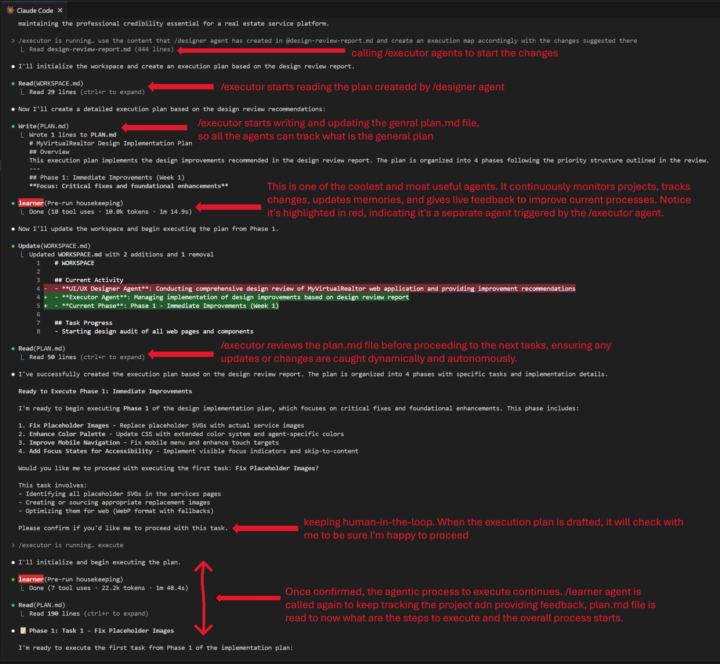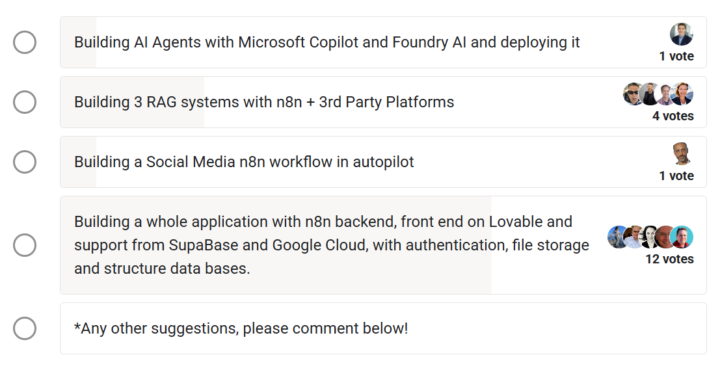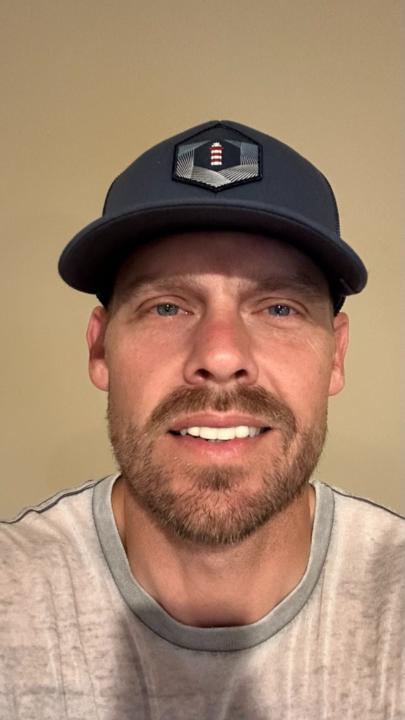Activity
Mon
Wed
Fri
Sun
Nov
Dec
Jan
Feb
Mar
Apr
May
Jun
Jul
Aug
Sep
What is this?
Less
More
Memberships
AI Masters Pro Community+
274 members • $99/m
AutoSkool.Club AI
58 members • $5/m
The Pro AI Directory
447 members • $129/y
SmartCuffs Training Hub (Free)
300 members • Free
🥇 AI For Professionals
127 members • $49/m
6 contributions to AutoSkool.Club AI
What about selling agents that require no build?
Hi Everyone, These past two weeks, I've been super busy figuring out a few things and testing the Chimera enhancements. I’ve also been working on starting to materialize a project I’ve been going back and forth on for months. Virtual Agents. I’ll explain more in the future, but basically, I’m trying to create a personalized set of agents—each of them working either individually or as part of a team—aimed at achieving specific business process automations. The idea is to build a catalog of virtual agents that you can almost template-ize and offer to businesses directly from a catalog. This will require quite a lot of work, but I believe the potential, once it’s done, is pretty high. My plan is to not only offer these myself, but also make them available to other AI practitioners like you—so you can re-sell these agents without having to build them yourself. They would have proven reliability and be tested in real business cases. Would this be something you’d be interested in? For example, being able to offer robust AI solutions and automations without having to build them from scratch?
This is my love story with AI
How did I start with AI? What was my wake-up point (with no return)? Let me tell you my story and how I got where I am. The first time I started with GPT was around summer 2021. At first, I thought it was super cool, but really nothing more than Google search on steroids. I used it here and there for simple stuff, like "write me a song about XYZ" or "tell me where XYZ comes from" or "what can you tell me about XYZ", nothing life-changing, but you could already see some potential. Slowly, I started to push what you could do into more useful territory. I began using it within my work to help me write security scripts for vulnerability management and help me understand more technical concepts. It was brilliant at it, and back then it was already giving me an edge over all my colleagues who weren't using it. Gradually, I started using it more and more for my day-to-day activities – helping me write emails, develop security policies, define implementation roadmaps, etc. At this point, it was becoming a key tool for my daily work. I felt this tool was giving me superpowers. I could do the work of 5 different IT and Cybersecurity experts, all on my own. But still, this was not my breaking point. This was October 2023, and the moment of truth was around the corner. November 2023. This was it. OpenAI released something that changed me forever: GPTs. Until then, ChatGPT was an isolated tool for me, super useful, but I couldn't take it out of there to use it for my own specific needs. Not until then. With GPTs, OpenAI gave everyone the opportunity to take this amazing technology and transform it into something fit for their specific needs. From that day, you could create a team of specialist agents capable of being trained on any subject you wanted, with specific instructions to deliver specific outcomes. But why was this a game changer for me? Because this was the first time I realized the impact this technology was about to have on EVERY SINGLE BUSINESS out there. Now I could build teams of specialists, feed specific knowledge documents, specific to a company or even specific to a team within a company, and train them to deliver outcomes that would've taken hours or even days for a human to prepare.
1 like • Jul 27
@Didac Fernandez thanks for sharing and for creating this space for us! To answer your question of where I am on the journey: I’m learning to build workflows, agent system instructions, and having some success. Next on the list, understanding data security, RAG, user interfaces, front-end and back-end. I’m looking for a few good folks to help complement my sales background. I see the opportunity to help small businesses build custom solutions that move the needle. I can sell them on the idea, but need help being able to execute as it is just me and my prompts…maybe that’s enough?!
Chimera v2.0: Sub-agents swarm update
Firsts run with my new Chimera v2.0 Claude Code Swarm system. This thing is magic. Seeing how everything is orchestrated autonomously in front of your eyes is really mesmerizing. And powerful. I have a team of software developers working for me. I just ask them what I want to build and confirm executions. That's all. Everyone can have a team of developers working for yourself today, building ANYTHING you want. This is the present, not the future.

🚨 The SEO Revolution is HERE
For the last few months I have been compiling every single bit of information I could find about the "New" SEO for LLM Search Engines like ChatGPT or Perplexity (also called GEO, LEO, LLMO, LLM SEO or AIO) to understand how they work, how to make the most out of them and how to position websites so that they can be found at all. It's being not an easy task as the available information is still very scarce, but I think I already have enough to put it all together in a practical guide. Traditional SEO is not dead (yet), but it will be by 2027 and ignoring this now, could cause that no-one finds your site via organic searches or LLM searches any more very soon. This means that your web traffic will uniquely come from people who is accessing your site directly, or through links. And the numbers don't lie: 📊 80% of consumers now rely on AI-generated content for 40% of their searches. 📉 25% reduction in organic web traffic due to zero-click searches. And it's going down quickly. ⚡ 1,200% growth in generative AI traffic in just 8 months. 🎯 90% of ChatGPT citations come from pages ranking 21+ (NOT your precious top 5 rankings!). Here's the brutal truth: While some are still optimizing for Google's Page 1, ChatGPT is mining pages 3, 5, and 10 for answers that millions trust daily. The shift is massive: → ChatGPT processes 1+ billion messages daily → Google's market share dropped below 90% for the first time since 2015 → Semrush predicts LLM traffic will COMPLETELY overtake traditional search by 2027 Traditional SEO is NOT prepared for this. The mechanics between generative AI and classic search are fundamentally different. But here's the opportunity: Early adopters are seeing 35% increases in featured snippets and 27% more brand citations by implementing LLM optimization strategies.
We have a winner!
First of all, thank you everyone who voted on our first poll. Second, I think that we have a clear winner: We are going to build a full stack application connecting all the dots together from n8n, to lovable, to Google Cloud and Supabase, so we can build a proper webapp, with robust authentication, organized structured backend with user management and smart process automations with AI agents running behind and orchestrating it. We will also try to upload the application to GitHub, and re-work it from another VibeCoding platform. This is a very useful and powerful skill to have, which will allow you to build pretty much anything you want if you understand all these flows. I will share the dates and the subscription updates very soon, but before I do, I would love for those who voted for this option (and the ones who didn't vote too), to share with me if there is anything in particular you would like to build together? If we don't have a clear winner or anything robust enough, I will pick one myself that I think will be best to connect everything together. I will be sharing tentative date towards the end of the week. I want to give a few days to gather feedback on the application. Also, those who voted for another option, don't worry, the rest of options will go straight to the pipeline so sooner or later we will go over them too, specially the ones related to Microsoft Copilot, as I see more and more interest from people that works with larger clients, but not too many good resources out there. The same for the RAG one, super important to have a good understanding on how they work, the different types and how to build them.

1 like • Jun 21
I would love to build an app that allows our team to eliminate paper (yes we still use paper orders) to mark down the implants that are used in surgery then reference those implants with a pricing database then create a implant construct for the patient record. Webhooking into the manufacturers billing system to trigger order restocks and invoicing would be fantastic too!
1-6 of 6
Active 7d ago
Joined Jun 21, 2025
Powered by


